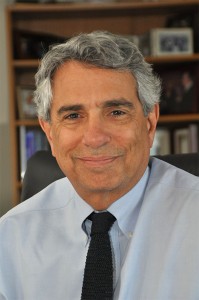Peter R Kowey, MD, FACC, FHRS Chief, Division of Cardiovascular Diseases, Main Line Health System, Bryn Mawr, PA
Background:
 Peter R. Kowey, MD, FACC, FHRS
Peter R. Kowey, MD, FACC, FHRS
Professor of Medicine and Clinical Pharmacology, Jefferson Medical College
Chief, Division of Cardiovascular Diseases, Main Line Health System
The William Wikoff Smith Chair in Cardiovascular Research, Lankenau Hospital and Medical Research Center. Wynnewood, PA
Dr. Kowey, is a graduate of St Joseph’s University and the University of Pennsylvania School of Medicine, Philadelphia, Pennsylvania. He completed his residency training in internal medicine at Penn State University and was a Fellow in cardiovascular medicine and research at the Harvard University School of Public Health, the Peter Bent Brigham Hospital, and the West Roxbury VA Hospital.
Dr Kowey’s principal area of interest has been cardiac rhythm disturbances. He has been the recipient of over 150 grants and has authored or co-authored over 400 papers and scientific reports. His group has participated in a large number of pivotal clinical trials, many directed by Dr. Kowey himself. He is the co-editor of 3 textbooks regarding cardiac arrhythmia . He is a referee for manuscript review for 25 journals and sits on the editorial boards of the Heart Rhythm Journal and the Journal of Cardiovascular Electrophysiology. He has provided consultation to over 60 international pharmaceutical companies and chaired several data and safety monitoring boards for clinical trials. While working with industry, he has pioneered the development of many antiarrhythmic drugs and antitachycardia devices that are used around the world for the treatment of patients with life-threatening cardiac rhythm problems. Dr Kowey also maintains a busy consultative arrhythmia practice and has been recognized as a leader in his field in several international publications.
Overview:
Atrial fibrillation is an irregular and often rapid heart rate that commonly causes poor blood flow to the body. During atrial fibrillation, the heart’s two upper chambers (the atria) beat chaotically and irregularly — out of coordination with the two lower chambers (the ventricles) of the heart. Atrial fibrillation symptoms include heart palpitations, shortness of breath and weakness. Episodes of atrial fibrillation can come and go, or you may have chronic atrial fibrillation. Although atrial fibrillation itself usually isn’t life-threatening, it is a serious medical condition that sometimes requires emergency treatment. It can lead to complications. Treatments for atrial fibrillation may include medications and other interventions to try to alter the heart’s electrical system. Retrieved from:
3 Key Points:
- Atrial fibrillation is an epidemic and responsible for much morbidity (illness) and poor quality of life.
- Stroke related to AF is common and devastating.
- There are treatments available.

 Valentine Group Health
Valentine Group Health


